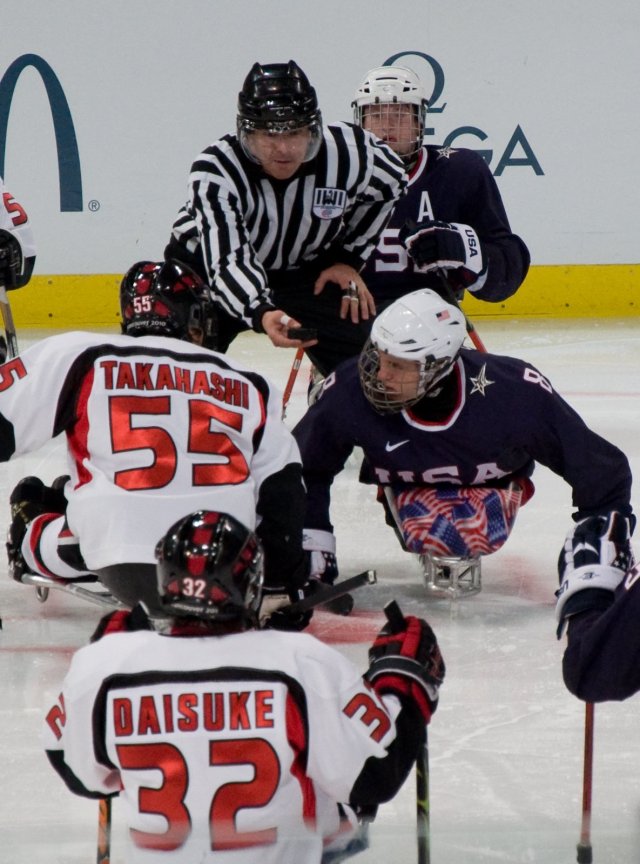In early April I interviewed Calgary Sledge Hockey Association (CSHA) President Jon Bateman (@yyc_jon on Twitter) for The Mobility Resource (TMR). Jon and I enjoyed an engaging conversation, so much I couldn’t fit all I wanted into the TMR piece. That article “An Interview with Calgary Sledge Hockey Association President Jon Bateman” hit the cyberspace waves on my birthday, Monday, April 22nd. Today I will share those extra insights which failed to call The Mobility Resource home.
As discussed within The Mobility Resource article under the sub headline “The Term ‘Adaptive Sports’,” both people with and without disabilities can play adaptive sports. In addition to creating a new appreciation for those living with disabilities, this establishes bonding opportunities. Bateman notes, “One of the things I really love about sledge hockey is if you have a brother or a sibling they can get out and play the game with you. That is a really important thing in families and in relationships between people with disabilities and those close to them.” He explains,
“A lot of how we relate to one another is through shared experience. Sport gives that to siblings of people with disabilities and those without. Friends too.”
I can certainly speak to the aforementioned notion’s credibility. While I personally do not play adaptive sports, I am active with friends. In my third Life of the Differently Abled guest post, “Eliminating Disability Related Social Anxiety,” I share how hiking in North Carolina brought me closer to my friends Sheila, Mike, and Tim.
Anyways back to my Jon Bateman interview. Another topic Jon talks about involved his master’s degree pursuit, specifically his recently completed practicum report. “I put forth the idea if you’re involved in an adaptive sport as a person with a disability, are you then more likely to volunteer in the community? Or, are you more likely to vote? Or, are you more likely to seek paid employment?”
Jon suggests yes, saying “My opinion being President of the association and all the years I’ve been involved (in sledge hockey) I really think if you are involved in adaptive sport, you really are more likely doing things in the community.” Still, he stresses the need for more research into the subject matter.
Yet what remains evident from Jon’s comments and experiences, the ability to build friendships through adaptive sports. “It’s been 16 years since I started and I would say there are at least five to 10 people who have been my teammates during that whole time. We’ve grown quite a bit since then but they really are close friends now.”





